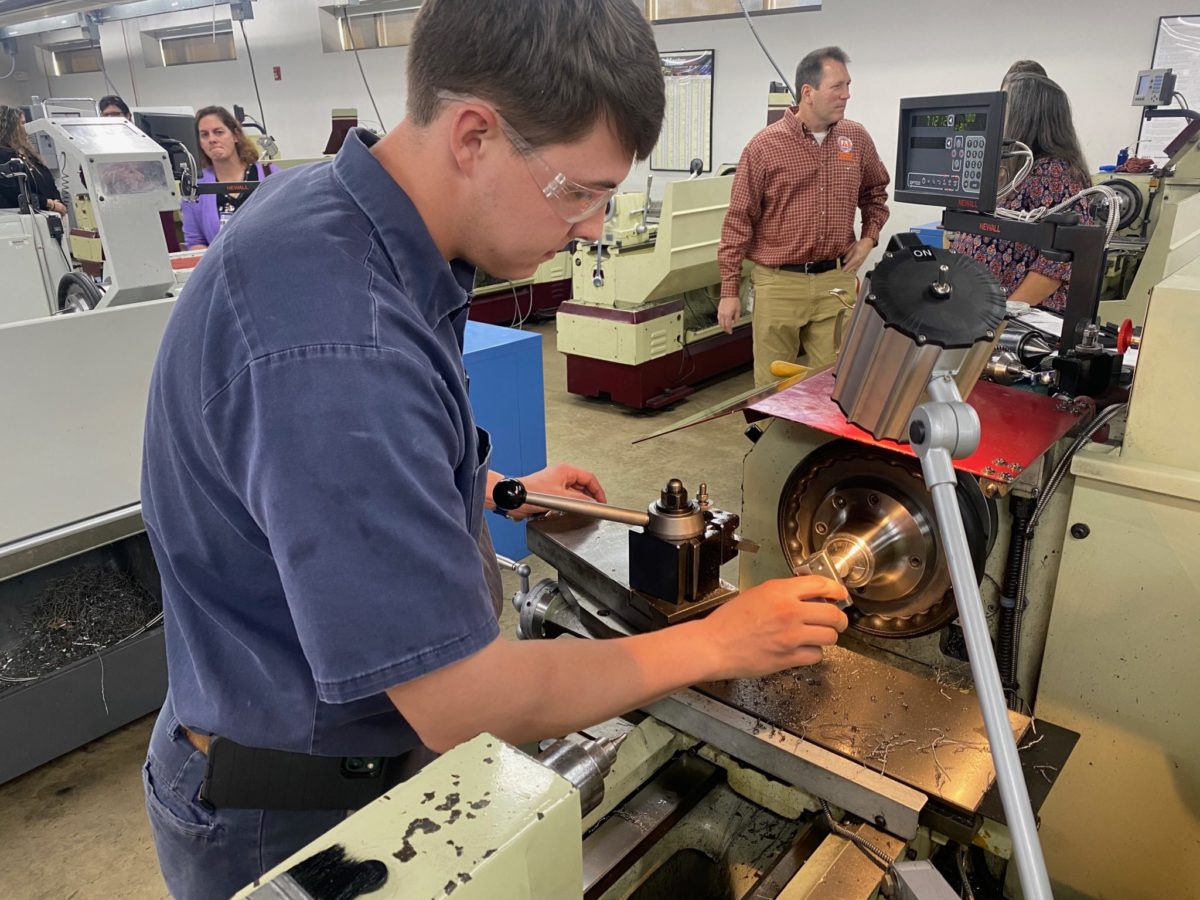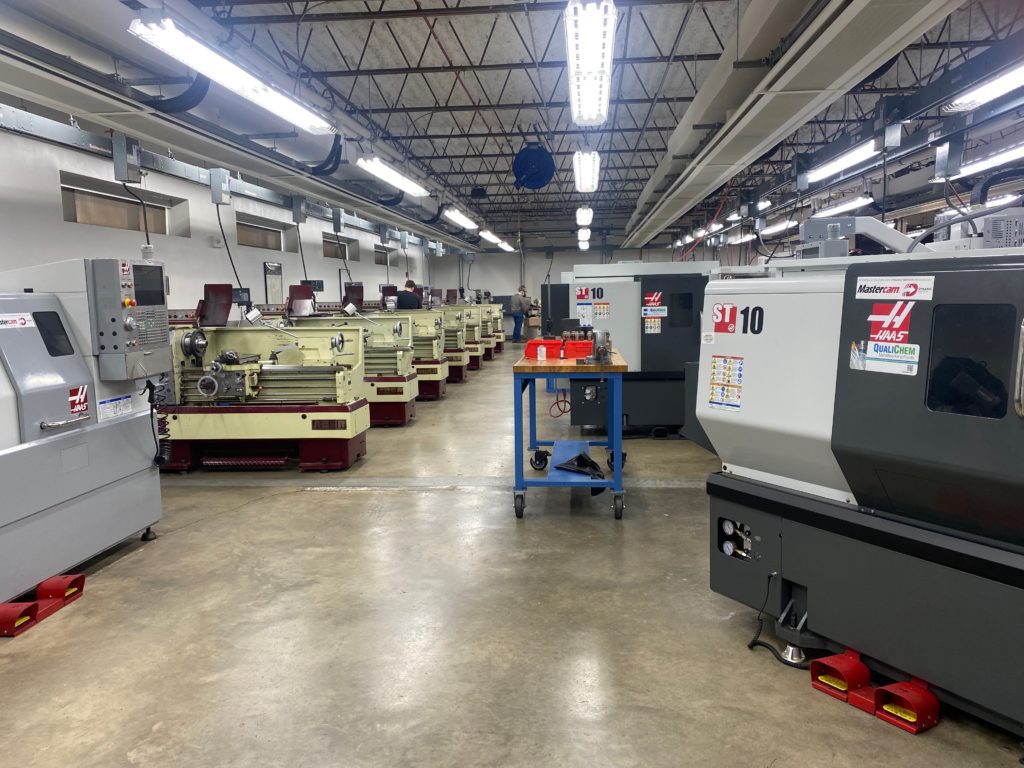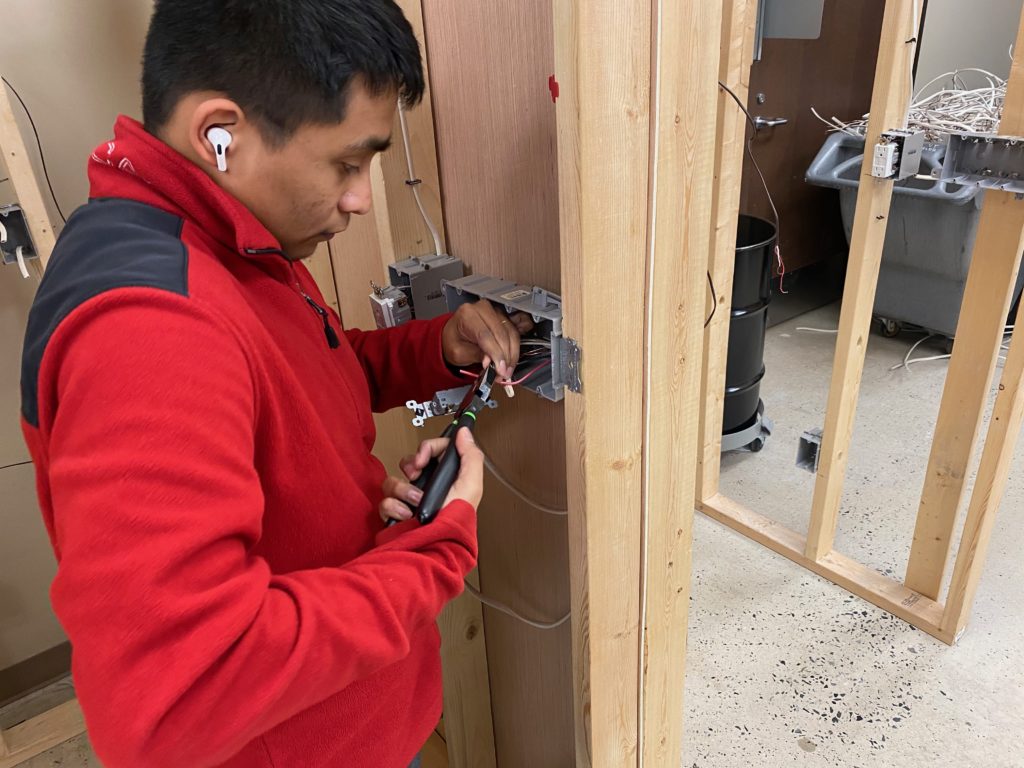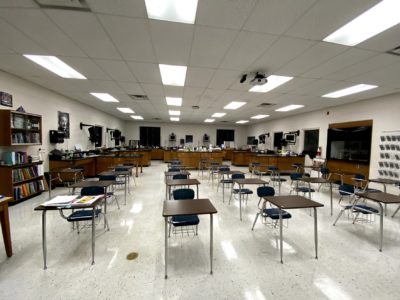
|
|
When Toyota announced that it had chosen a Greensboro-Randolph County megasite as the location for its new $1.29 billion automotive battery plant, state leaders were thrilled.
“It’s tremendous that Toyota has selected North Carolina for such an important part of its electric vehicle future, creating good paying jobs and moving us toward a healthier environment,” said Gov. Roy Cooper in a press release back in December of 2021. “It’s clear the world is beginning to embrace a clean energy future and today’s decision puts North Carolina front and center.”
“I welcome Toyota to North Carolina,” said Senate President Pro Tempore Phil Berger, R-Rockingham, in a press release. “We’ve worked hard to transform North Carolina into a jobs-friendly state with low taxes, reasonable regulations, and a world-class education system. As a result, companies big and small are creating jobs here, continuing a decade of growth.”
But while for state leaders the reaction was unmitigated joy, for Randolph Community College Interim President Elbert Lassiter, he knew that meant it was time to gear up.
“The challenge for us moving forward is Toyota is building a facility within our county. So that means Randolph Community College is responsible for delivering the initial training,” he said, adding later: “We’re in the process of ordering equipment that will be needed. And we’re looking for space to provide that particular training. We’re actually in conversation with our neighboring community colleges … is there a way to build a regional training center, somewhere in and around that Toyota site that will not only serve Toyota but will serve … all the other companies that may come as suppliers for the two companies and existing companies in that particular area?”
The training Randolph Community College will provide initially will cost about $2.2 million and will cover about 2,400 employees, Lassiter said. But neither Randolph nor Toyota is paying. Community colleges in the state can offer customized training to companies and get reimbursed through the state.
And the opportunity presented by Toyota could bring other boons to Randolph Community College as well. Toyota will be hiring, and Randolph is well positioned to provide the kinds of workers the company needs. At least as far as infrastructure goes.
When you walk through Randolph Community College’s Continuing Education and Industrial Center, you see cavernous rooms filled with machine after machine, you see classrooms rigged with electronic wiring projects, robots both manual and automated, not to mention the many computers that students use to learn how to run some of the equipment. But, the day EducationNC visited, there were many more machines than students. And that is a problem.

Jaime Trogdon, the department head over the Computer Integrated Machining Program at the college, said that he gets calls several times a week from companies around the state, not to mention Virginia, South Carolina, and even Tennessee, looking for graduates who can go to work.
“The biggest problem is we can’t meet the demand,” he said. “We don’t have enough students to satisfy everybody. That’s one of our biggest challenges right now.”

Getting more students
Numbers are down at community colleges across the state post-COVID-19, and Randolph, like many community colleges, is just starting to see those numbers tick back up. One of the ways the college is trying to address the issue is through apprenticeships, including its program Apprenticeship Randolph — a pre-apprenticeship program for high schoolers.
Stacey Miller is the director of apprenticeships and pathways at the college. She said there are apprenticeship opportunities for high school students in manufacturing that include tracks in machining and mechatronics. And there are also options in automotive and IT, among others.
The program currently has 21 company partners and has graduated 20 students so far. Over the summer, participants do a six-week program that includes classes at the school as well as on-the-job training.
One of the students who went through it is Colby Edwards, 22, who currently works for Sapona Plastics, LLC in Asheboro.
He started the pre-apprenticeship program in high school. He said he didn’t really have post-graduation plans, other than that he knew he wanted to weld. One of his friends came up to him one day and said he was going to join the apprenticeship program. So Edwards jumped on board, too.
He ended up working with Sapona during the program and then continued to work with them after graduation.
“They pretty much touched on everything. I didn’t just do one single thing. I learned a lot of different things,” he said of Sapona.
Edwards graduated with an Associates of Applied Science and Advanced Manufacturing from the college. But with just a few more classes, he could also get a degree in machining. So while he works, he is still pursuing that.
He has nothing but good things to say about the pre-apprenticeship program and the future it’s providing.
“It’s really opened up a lot of pathways for me. So I really enjoyed it,” he said, adding later: “If it wasn’t for my company and Stacey, none of this would have been possible.”
The Toyota opportunity
Right now, Lassiter said basically all the students who could potentially go work for Toyota when it opens are already spoken for. To provide workers for the company in the future will require more students.
“That’s a big part of what Toyota is trying to do. Going to schools and getting more people interested in working for them,” Lassiter said.
Next year at this time, Randolph Community College will be rolling out training for the company. And the plant will be keeping the college busy for the foreseeable future, Lassiter said.
“That campus will have 4 or 5,000 people in it five years from now. And not just machinists, not just operators. They’ll have accountants, they’ll have everything in a small city that you have,” he said. “So all of our programs of study will benefit … But the biggest challenge for me as we talk about Toyota and training is how do I ensure that I don’t lose sight of, that Randolph Community College doesn’t lose sight of, all of our other existing industry partners?”
Partners like Sapona Plastics where Edwards went to work. Even as the new shiny thing comes into town, Randolph Community College needs to remember its roots.
“They’re equally as important. No, no, no, they’re more important. They built this Apprenticeship Randolph themselves, and they’ve hired our students for years,” Lassiter said. “Yeah, we’re happy about Toyota. We’re going to do what we’re gonna do for Toyota, but not at the expense of the family here in Randolph County that we’ve been serving.”



